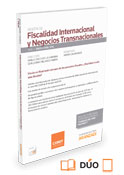
As vacation days approach and we yearn for the warm and sunny heat typical days, I find myself entertained by the US administration, which is so thrilling and full of cliffhangers, that I feel like I’m watching Season 2 of the US political saga on the Trump´s One, Big, Beautiful Bill (“OB Bill”). Recently, my eyes have been glued to the US roller coaster of mind-changing policies in the US, keeping me constantly on my toes. Didn’t you feel the same? July 4th marked “The End”, as President Trump finally signed the bill. Meaning that a few days ago, this debated bill became officially the law!
As you may know, last May, I wrote about the One Big, Beautiful Bill. A month after, the US administration announced additional measures and amendments that impacting the proposed Internal Revenue Code Section 899, the very known global intangible low-taxed income (“GILTI”) rules, the foreign-derived intangible income (“FDII”) regime and other provisions.
The Senate Finance Committee released a draft reconciliation bill (“the Senate Bill”) on June 16, 2025, presenting tax provisions and extensions of expiring 2017 TCJA items in 2025. Said bill proposed changes to these regulations already drafted in the OB Bill and to key international tax provisions, particularly concerning Section 899 FDII, GILTI, Section 163(j), and many other provisions. I will limit the present to 3 main points.
Section 899:
Proposals by the Senate Bill are as following:
The Senate Bill retains proposed Section 899 from the OB Bill, with key modifications to target “applicable persons” in “offending foreign countries”, instead of “discriminatory foreign countries” having “unfair foreign taxes” which means to include “extraterritorial tax” as well and “discriminatory tax”. Where the OB Bill, did not explicitly include a diverted profits tax though the Secretary can designate other taxes as “discriminatory”.
It also narrows the scope of tax rate increases, applying them only to the “applicable persons” connected to countries with an extraterritorial tax, and not to those solely in countries with a discriminatory tax like a DST.
In contrast to the OB Bill, the Senate Bill explicitly exempts the following from proposed Section 899: original issue discount, portfolio interest, certain other interest and interest-related dividends, and similar amounts designated by the Secretary.
These are key aspects modifications of the rate increase under proposed Section 899:
It caps the increase at 15% points above the otherwise applicable rate, a reduction from the OB Bill’s 20%-point cap.
It revises the definition of the “applicable date”, which now means the first day of the first calendar year beginning on or after the latest of the following:
one year following enactment,
180 days following the enactment of the unfair foreign tax, or
the date the unfair foreign tax becomes effective.
The application of BEAT is expanded to certain corporations with foreign ownership by reducing the base erosion percentage threshold to 0.5%.
A key difference from the OB Bill is the inclusion of coordination rules between proposed Section 899 and existing Section 891, as proposed by the Senate Bill. This coordination not only slightly modifies the wording of Section 891 and incorporates definitions from Section 899(d), but also, it crucially prevents overlapping rate increases that could otherwise occur under both sections.
Consequences:
The one-year delay means that Section 899 will not apply to calendar-year taxpayers until tax years beginning after December 31, 2026, and withholding agents will not be required to withhold at higher amounts until January 1, 2027. This gives a little lapse of time to taxpayers to adjust.
The 15 %-point cap on rate increases is a favorable change compared to the House Bill’s 20%- point cap.
By targeting extraterritorial taxes, the Senate Bill narrows the potential scope of Section 899.
With the expansion of the BEAT rules, US corporations with direct or indirect foreign ownership could be reached as well.
FDII regime:
Presently, Section 250 allows a 37.5% deduction for FDII, resulting in a 13.125% effective corporate tax rate, for tax years before 2026. This deduction would drop to 21.875% after 2025, increasing the effective corporate tax rate to 16.406%.
FDII is calculated through a multi-step process where the gross deduction eligible income (“DEI”) is determined by excluding specific income types. DEI is reduced by «properly allocable» deductions to arrive at DEI. Then, the deemed intangible income (“DII”) is calculated by reducing its DEI by the deemed tangible income return (“DTIR”), which is 10% of QBAI. The last step requires that the FDII would be the product of DII multiplied by the ratio of foreign-derived DEI (“FDDEI”) to DEI.
Proposals by the Senate Bill are as following:
A more reduced permanently FDII deduction to 33.34%. The OB Bill proposed a more generous deduction of 36.5%.
An amendment to the DEI definition is introduced where it excludes the following categories of income: 1- income from sales of property giving rise to rents or royalties, and 2- certain passive income, including income that would be foreign personal holding company income. The high tax kickout rules do not apply to these exclusions.
Just like in the case of GILTI, deductions allocable limited to DEI to those «directly related» to gross DEI.
Consequences:
The Senate Bill would raise the effective FDII tax rate to 14%, which is still below the rate scheduled for post-2025 currently 16.406%. The immediate effective date of the DEI exclusions could impact pending transactions. Taxpayers may need to re-analyze FDII eligibility, particularly concerning royalties.
Reduced expense apportionment should generally increase the FDII deduction, although the scope of the “directly related” standard is unclear, requiring further guidance. The DTIR removal may significantly benefit companies with substantial US tangible property.
GILTI Regime
Under current GILTI rules, Section 951A, US shareholders of controlled foreign corporations (“CFC”) must include GILTI in gross income, calculated as net CFC tested income less net deemed tangible income return (“NDTIR”).
Currently, a pre-2026 deduction pursuant to Section 250 results in a 10.5% effective GILTI tax rate.
Taxpayers also receive a deemed-paid credit pursuant to Section 960(d), for 80% of foreign taxes. Taken together, the 50% as per Section 250 deduction and 80% deemed paid credit allowance mean that a taxpayer with a foreign effective tax rate of at least 13.125%.
Proposals by the Senate Bill are as following:
Deduction according to Section 250 is permanently decreased from 50% to 40%, increasing the effective GILTI tax rate to 12.6%. The OB Bill proposed a 48.2% deduction.
Increase of the deemed paid credit pursuant to Section 960(d) from 80% to 90%, bringing the crossover rate to approximately 14%. This would eliminate the NDTIR for qualified business asset investment (“QBAI”).
Restriction of deductions allocable to GILTI inclusions for Section 904(a) purposes to (i) the Section 250 deduction (including Section 78 gross-up); (ii) certain deductible taxes allocable to GILTI inclusions; and (iii) deductions “directly allocable” to GILTI inclusions. This reallocates expenses from the GILTI category to US-source income.
Consequences:
The Senate Bill’s 14% GILTI crossover rate exceeds both the current rate of 13.125% and the OB Bill’s rate of 13.335%, however it remains below the rate absent legislative action for post taxation year 2025 which is set to 16.406%. Furthermore, the proposed expense apportionment changes are intended to limit interest expense allocation to the GILTI category. Finally, reallocating interest expenses to US-source of income could significantly increase GILTI foreign tax credit limitation.
Conclusion:
Many provisions for tax and non-tax related matters have been amended, but what remained is the tone of this law. The White House calls it “a once-in-a-generation piece of legislation that makes good on his campaign promises and puts America First”. Putting America First, it is clear. With this US administration I cannot predict that there would not be Season 3!
The opinion expressed in this article is exclusively that of the author and does not reflect and cannot be related to her professional environment.



